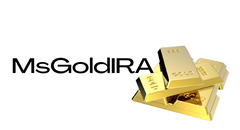
Ricardo Salinas on Bitcoin as a Hedge Against Inflation Tax
Mexican billionaire Ricardo Salinas believes that bitcoin offers a unique solution to safeguarding wealth against inflation tax. He emphasizes that people's savings are being eroded without their consent or knowledge. According to Salinas, the debasement of currency is a cunning technique employed by fraudsters to avoid raising taxes or accumulating debt.
Ricardo Salinas Highlights the Importance of Bitcoin
In an interview with Bitcoin Magazine, Ricardo Salinas, the chairman of Grupo Salinas, discusses how bitcoin can impact economies, particularly in Latin America. He asserts that inflation tax is a global issue, affecting not only Mexico but also other regions worldwide. Salinas argues that bitcoin's resistance to debasement makes it an essential tool for protecting wealth in hyperinflationary economies.
Overcoming Obstacles to Bitcoin Adoption in Mexico
When asked about the necessary conditions for mass bitcoin adoption in Mexico, Salinas responds by stating that people need to recognize the scams and robberies perpetuated by both criminals and the government. He firmly believes that individuals must understand how these fraudulent activities occur in order to defend themselves. Salinas refers to government officials as "gobiernicolas" or government cavemen, highlighting their determination to retain the power to confiscate wealth. He suggests that taking back control is the only way to counteract their actions effectively.
The Debasement of Currency: A Trick to Avoid Raising Taxes or Debt
Salinas asserts that it is crucial for everyone to grasp how the debasement of currency serves as a valuable tactic for fraudsters to evade tax hikes and debt accumulation. He emphasizes the need for widespread awareness of this technique and its impact on society.
The Impact of a Bitcoin ETF and Obstacles to its Approval
Discussing the potential effect of a bitcoin exchange-traded fund (ETF), Salinas recognizes it as a new source of demand that simplifies bitcoin investment. However, he notes that the reluctance of those in power to allow its implementation is a direct result of its positive impact. Salinas mentions Gary Gensler, the chairman of the U.S. Securities and Exchange Commission (SEC), as someone who understands this situation well. In conclusion, Salinas suggests that the resistance to a bitcoin ETF is not about investor protection, but rather about preserving the government's ability to finance its spending without raising taxes.
What are your thoughts on Ricardo Salinas' perspective? Share your opinion in the comments section below.
Frequently Asked Questions
How is gold taxed by Roth IRA?
A tax assessment for an investment account will be based on the current market value, and not what you paid initially. Any gains made by you after investing $1,000 in a stock or mutual fund are subject to tax.
If you place the money in a traditional IRA, 401(k), or other retirement plan, there is no tax when you take it out. Only earnings from capital gains and dividends are subject to tax. These taxes do not apply to investments that have been held for more than one year.
These rules vary from one state to another. Maryland's rules require that withdrawals be taken within 60 days after you turn 59 1/2. Massachusetts allows you up to April 1st. New York is open until 70 1/2. To avoid penalties, plan ahead so you can take distributions at the right time.
Is gold a good investment IRA?
Any person looking to save money is well-served by gold. It's also a great way to diversify your portfolio. There is much more to gold than meets your eye.
It has been used throughout history as currency and it is still a very popular method of payment. It's often referred to as “the world's oldest currency.”
But gold is mined from the earth, unlike paper currencies that governments create. That makes it very valuable because it's rare and hard to create.
The supply and demand for gold determine the price of gold. If the economy is strong, people will spend more money which means less people can mine gold. Gold's value rises as a result.
On the flip side, people save cash for emergencies and don't spend it. This means that more gold is produced, which reduces its value.
It is this reason that gold investing makes sense for businesses and individuals. If you have gold to invest, you will reap the rewards when the economy expands.
In addition to earning interest on your investments, this will allow you to grow your wealth. You won't lose your money if gold prices drop.
Can I buy gold using my self-directed IRA
Although you can buy gold using your self-directed IRA account, you will need to open an account at a brokerage like TD Ameritrade. You can also transfer funds from an existing retirement fund.
The IRS allows individuals up to $5.500 annually ($6,500 if you are married and filing jointly). This can be contributed to a traditional IRA. Individuals can contribute up to $1,000 annually ($2,000 if married and filing jointly) directly to a Roth IRA.
If you do decide to invest in gold, you'll want to consider purchasing physical bullion rather than investing in futures contracts. Futures contracts are financial instruments that are based on gold's price. These contracts allow you to speculate on future gold prices without actually owning it. But, physical bullion is real bars of gold or silver that you can hold in one's hand.
How much money should my Roth IRA be funded?
Roth IRAs are retirement accounts that allow you to withdraw your money tax-free. The account cannot be withdrawn from until you are 59 1/2. You must adhere to certain rules if you are going to withdraw any of your contributions prior. First, your principal (the deposit amount originally made) is not transferable. This means that you can't take out more money than you originally contributed. If you take out more than the initial contribution, you must pay tax.
You cannot withhold your earnings from income taxes. When you withdraw, you will have to pay income tax. Let's take, for example, $5,000 in annual Roth IRA contributions. In addition, let's assume you earn $10,000 per year after contributing. This would mean that you would have to pay $3,500 in federal income tax. So you would only have $6,500 left. Because you can only withdraw what you have initially contributed, this is all you can take out.
Therefore, even if you take $4,000 out of your earnings you still owe taxes on $1,500. On top of that, you'd lose half of the earnings you had taken out because they would be taxed again at 50% (half of 40%). So even though your Roth IRA ended up having $7,000, you only got $4,000.
There are two types: Roth IRAs that are traditional and Roth. Traditional IRAs allow you to deduct pretax contributions from your taxable income. To withdraw your retirement contribution balance plus interest, your traditional IRA is available to you. There is no limit on how much you can withdraw from a traditional IRA.
Roth IRAs do not allow you to deduct your contributions. After you have retired, the full amount of your contributions and accrued interest can be withdrawn. There is no minimum withdrawal amount, unlike traditional IRAs. Your contribution can be withdrawn at any age, not just when you reach 70 1/2.
Can I have physical gold in my IRA
Not just paper money or coins, gold is money. It's an asset that people have used for thousands of years as a store of value, a way to keep wealth safe from inflation and economic uncertainty. Investors use gold today as part of their diversified portfolio, because it tends to perform better in times of financial turmoil.
Today, Americans prefer precious metals like silver and gold to stocks and bonds. It is possible to make money by investing in gold. However, it doesn't guarantee that you'll make a lot of money.
Another reason is that gold has historically outperformed other assets in financial panic periods. Between August 2011 and early 2013 gold prices soared nearly 100 percent, while the S&P 500 plunged 21 percent. During these turbulent market times, gold was among few assets that outperformed the stocks.
The best thing about gold investing is the fact that there's virtually no counterparty risk. Your shares will still be yours even if your stock portfolio drops. However, if you have gold, your value will rise even if the company that you invested in defaults on its loans.
Finally, gold is liquid. This means that you can sell gold anytime, regardless of whether or not another buyer is available. The liquidity of gold makes it a good investment. This allows you take advantage of the short-term fluctuations that occur in the gold markets.
How much should precious metals make up your portfolio?
First, let's define precious metals to answer the question. Precious metals refer to elements with a very high value relative other commodities. This makes them highly valuable for both investment and trading. The most traded precious metal is gold.
There are many other precious metals, such as silver and platinum. The price of gold tends to fluctuate but generally stays at a reasonably stable level during periods of economic turmoil. It is also not affected by inflation and depression.
The general trend is for precious metals to increase in price with the overall market. That said, they do not always move in lockstep with each other. The price of gold tends to rise when the economy is not doing well, but the prices of the other precious metals tends downwards. This is because investors expect lower interest rates, making bonds less attractive investments.
In contrast, when the economy is strong, the opposite effect occurs. Investors want safe assets such Treasury Bonds and are less inclined to demand precious metals. These precious metals are rare and become more costly.
Therefore, to maximize profits from investing in precious metals, you must diversify across multiple precious metals. You should also diversify because precious metal prices can fluctuate and it is better to invest in multiple types of precious metals than in one.
Who owns the gold in a Gold IRA?
The IRS considers anyone who owns gold to be “a form money” and therefore subject to taxation.
You must have at least $10,000 in gold and keep it for at most five years to qualify for this tax-free status.
While gold may be a great investment to help prevent inflation and volatility in the market, it's not wise to keep it if you won't use it.
If you plan to eventually sell the gold, you'll need a report on its value. This could impact the amount of capital gains taxes your owe if you cash in your investments.
A financial planner or accountant should be consulted to discuss your options.
Statistics
- (Basically, if your GDP grows by 2%, you need miners to dig 2% more gold out of the ground every year to keep prices steady.) (smartasset.com)
- This is a 15% margin that has shown no stable direction of growth but fluctuates seemingly at random. (smartasset.com)
- If you take distributions before hitting 59.5, you'll owe a 10% penalty on the amount withdrawn. (lendedu.com)
- The price of gold jumped 131 percent from late 2007 to September 2011, when it hit a high of $1,921 an ounce, according to the World Gold Council. (aarp.org)
- Indeed, several financial advisers interviewed for this article suggest you invest 5 to 15 percent of your portfolio in gold, just in case. (aarp.org)
External Links
investopedia.com
- Are You a Good Candidate for a Gold IRA
- What are the Options? Types, Spreads and Example. Risk Metrics













